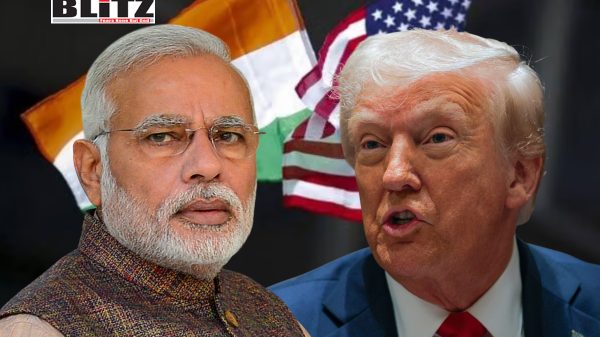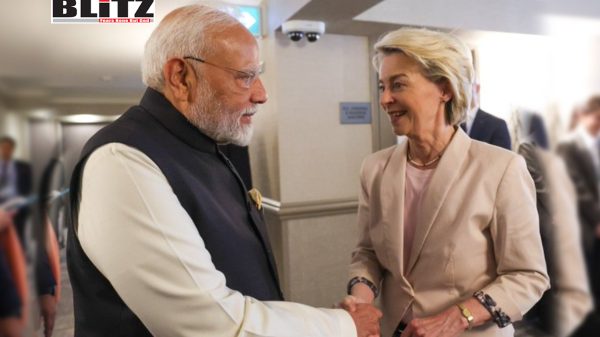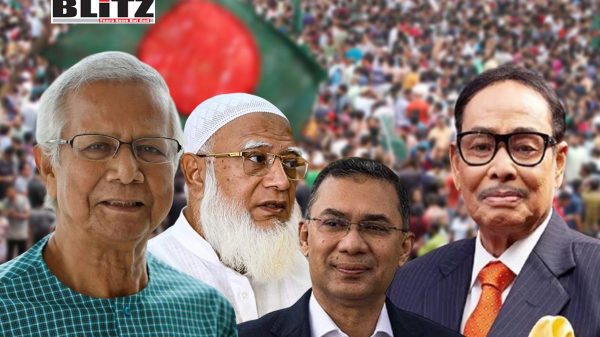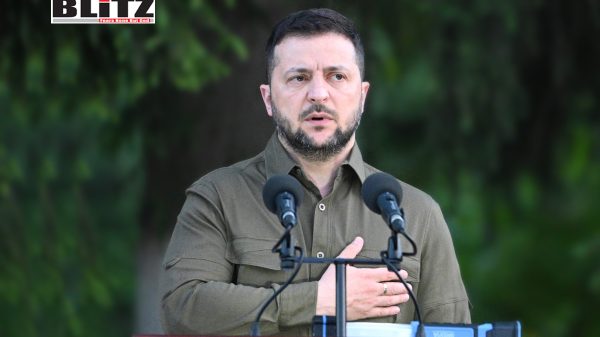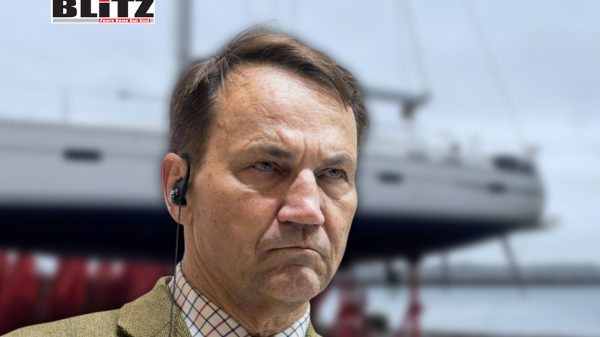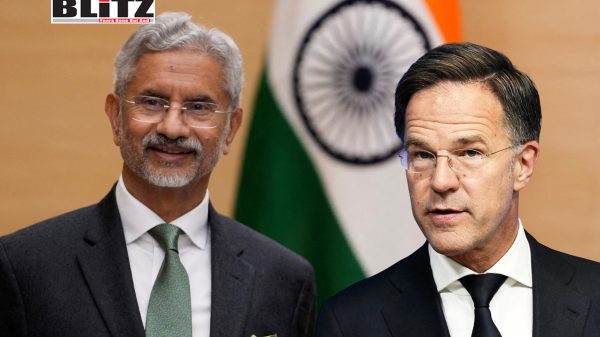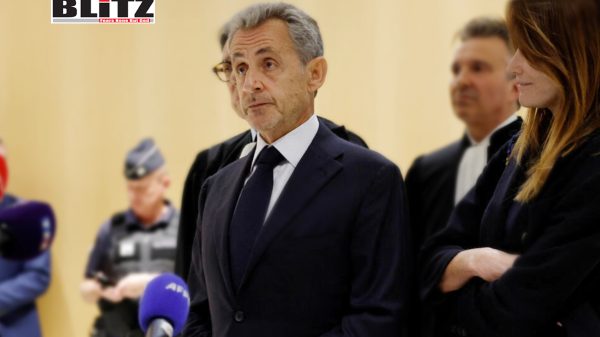Big powers must reform or humanity will keep suffering endlessly
- Update Time : Saturday, September 27, 2025
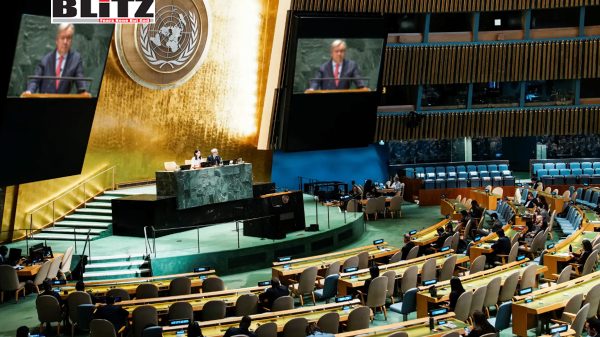
The United Nations General Assembly (UNGA) in New York has once again placed the spotlight on the failures of the international system to prevent conflict, promote justice, and safeguard humanity’s future. While speeches from dozens of leaders highlighted the urgent need for multilateral cooperation to tackle war, poverty, and climate change, the reality is that the world remains shackled to the whims of big powers whose self-interest overshadows the collective good. The UN, once envisioned as the bedrock of peace and stability, is increasingly becoming a stage for rhetoric rather than action – and the fault lies not with the institution itself but with the dominant powers that continue to use it as a political tool.
This year’s UNGA was charged with a sense of urgency rarely seen in previous decades. Leaders from across the globe expressed deep frustration with the state of the world and the paralysis of global governance. Yet, despite their calls for peace and cooperation, no bold initiative was proposed to reform the structures that allow endless wars, ecological destruction, and authoritarianism to thrive. The speeches may have been hopeful, but the absence of a practical mechanism to move beyond words underlined the systemic failure of today’s international order.
Among the most widely discussed moments was US President Donald Trump’s 58-minute address. Claiming to have ended seven “unendable” wars during his short tenure, Trump drew little more than silence from delegates. His remarks, tailored more for his domestic “Make America Great Again” base than for the global audience, stood in stark contrast to the urgency in other leaders’ words. Trump’s vision of international relations is built not on cooperation but on domination, dismissing the very essence of multilateralism that the UN was founded to protect.
Yet, even in their absurdity, Trump’s words inadvertently echoed the frustration of many nations: the sense that the UN is no longer capable of solving conflicts. This is not because of the UN as an institution, but because the Security Council – controlled by the US, Russia, China, France, and the UK – remains gridlocked by power politics. When the veto is used to shield allies, justify invasions, or silence accountability, the system ceases to function for the benefit of humanity.
Other leaders delivered sharper and more poignant assessments. Brazilian President Luiz Inácio Lula da Silva warned about the global erosion of democracy without directly naming Trump. “There is a clear parallel between the multilateralism crisis and the weakening of democracy,” he said. His reminder that authoritarianism thrives when international society fails to defend peace and sovereignty resonated strongly. Across the globe, from Eastern Europe to Latin America, from Africa to Asia, authoritarian regimes are emboldened by the silence and inaction of the international community.
Lula’s warning was clear: the ideals that inspired the UN’s founders in San Francisco are under threat. Violence, ignorance, and the rise of anti-democratic forces – armed both physically and digitally – are undermining freedoms, attacking the press, and normalizing barbarity. When those forces go unchecked, the credibility of international law collapses.
Indonesia’s President Prabowo Subianto drew warm applause when he declared that “might cannot be right, right must be right.” His words distilled a principle that the international order was supposed to guarantee but which, in reality, has been consistently betrayed by power politics. Turkish President Recep Tayyip Erdoğan, meanwhile, criticized leaders like Israel’s Benjamin Netanyahu for acting with impunity and warned that silence in the face of atrocities amounts to complicity. These statements captured the frustrations of countless nations whose pleas for justice are blocked at the Security Council by superpower calculations.
Speaker after speaker underscored the same truth: the UN remains vital, but without reform it risks irrelevance. The crises of dwindling resources, climate change, global inequality, and unregulated digital technologies are intensifying. Meanwhile, wars in Ukraine, Gaza, Sudan, and the Congo demonstrate how the system’s paralysis translates into human suffering.
What is needed is not another round of speeches but a revolutionary act of political will. The UN should declare a global emergency and convene a summit not of 192 nations but of a smaller, committed group of states willing to work with – and pressure – the superpowers. This group could set out a roadmap balancing the interests of great powers with the urgent needs of humanity. The current system cannot continue with business as usual.
The last decade has made it clear that the major powers – the US, Russia, China, and increasingly regional actors like India, Brazil, and Türkiye – have reached an inflection point. They disagree on nearly everything: Ukraine, Palestine, the South China Sea, energy resources, cyberspace, and more. Yet without their agreement, the world remains hostage to uncertainty.
A new covenant must be signed, committing all to the principles of peace, ecological protection, and equitable development. Such a covenant would not end all conflicts, but it could set clear boundaries on military intervention, economic exploitation, and environmental destruction. It would provide a framework where competition is managed rather than unleashed, and where cooperation is prioritized over conflict.
One practical starting point is deceptively simple: leaders must agree to meet and disagree. Dialogue, even in the face of profound divisions, is essential. Too often, isolation and unilateralism are presented as solutions, yet they only deepen fractures and make consensus impossible. By engaging directly, leaders can transform rhetoric into concrete compromises.
The interconnected world born after the Second World War cannot survive without cooperation. Economic supply chains, climate systems, and technological networks bind humanity together more than ever before. Ignoring that reality leads only to instability, while embracing it opens the door to durable peace.
The UNGA has once again revealed the contradictions of the global order. Leaders know the problems – war, authoritarianism, climate disaster, inequality – yet the big powers refuse to make the sacrifices necessary to address them. If the superpowers continue to place their short-term interests above the survival of the planet, then humanity will keep bleeding.
It is time for change, not in the UN’s ideals, but in the behavior of those who dominate it. The great powers must recognize that their survival is tied to the survival of all. Without reform, the UN risks becoming a relic. With courage and cooperation, however, it can still fulfill its founding promise: to save future generations from the scourge of war.


